To keep your vehicle's engine operating at its full potential, you'll need to be sure to use the oil best suited for it. This fluid is vital for several reasons, and selecting the wrong one can decrease performance and even damage the engine. If you are driving a Jeep Grand Cherokee and want to know what the best oil to use is, we can help. We researched this popular model in depth so you'll know what to keep on hand.
The 2022 Jeep Grand Cherokee owner's manual states that Mopar SAE 5W-30 fully synthetic engine oil is recommended. The manufacturer also states that an alternative brand can be substituted, but it must have the API donut trademark.
Now that we know that the best oil for the Jeep Grand Cherokee is Mopar SAE 5W-30 Full Synthetic Engine Oil, we'll look into why using the recommended oil is so important. You might also be wondering when you should change the oil in this vehicle or if synthetic oil is better than conventional brands. For the answers to these questions and more, read ahead and see what we were able to discover.
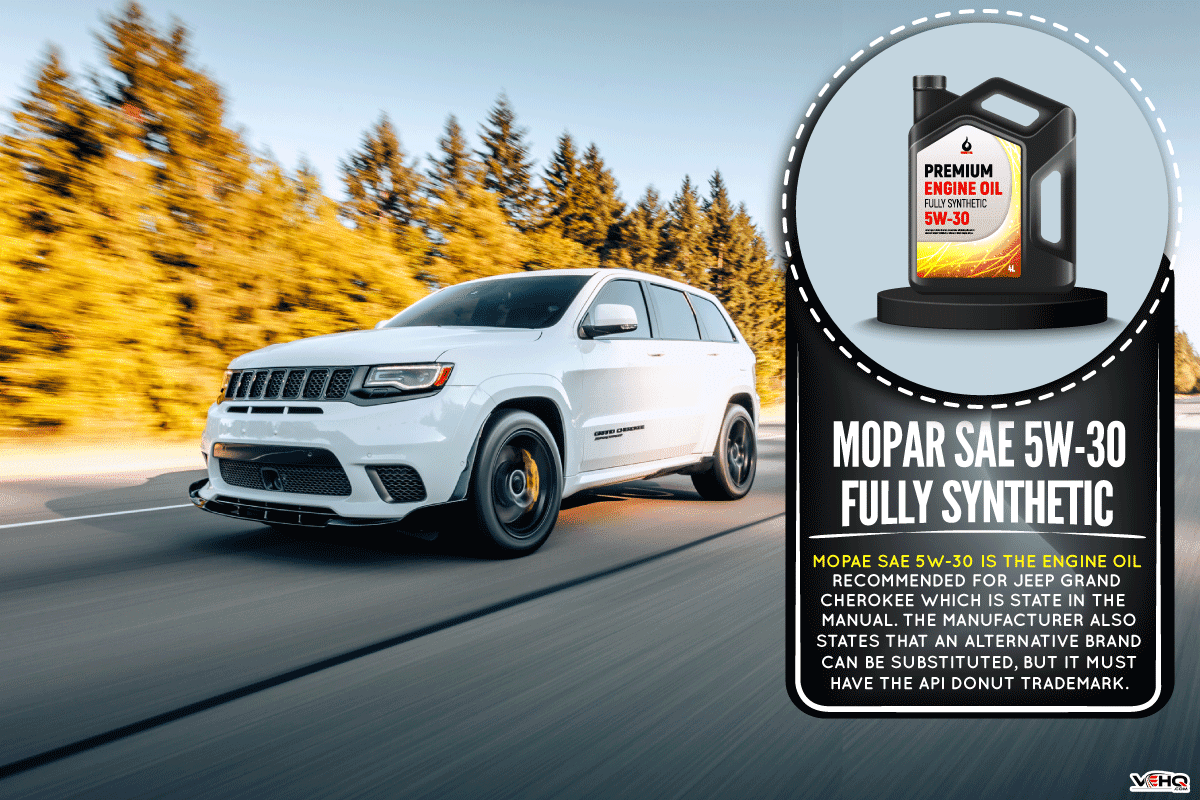
Using the recommended oil for your Jeep is important for its performance
Earlier in this post, we gave the manufacturer's recommendation for the best oil to use in the Jeep Grand Cherokee. Though using a brand other than Mopar can be okay, straying from the grade the engine has been designed for can be bad news.
Using the wrong grade of oil can lead to a whole host of problems, some of them being pretty costly. Here, we'll examine the most substantial issues you can face if you don't use the correct grade.
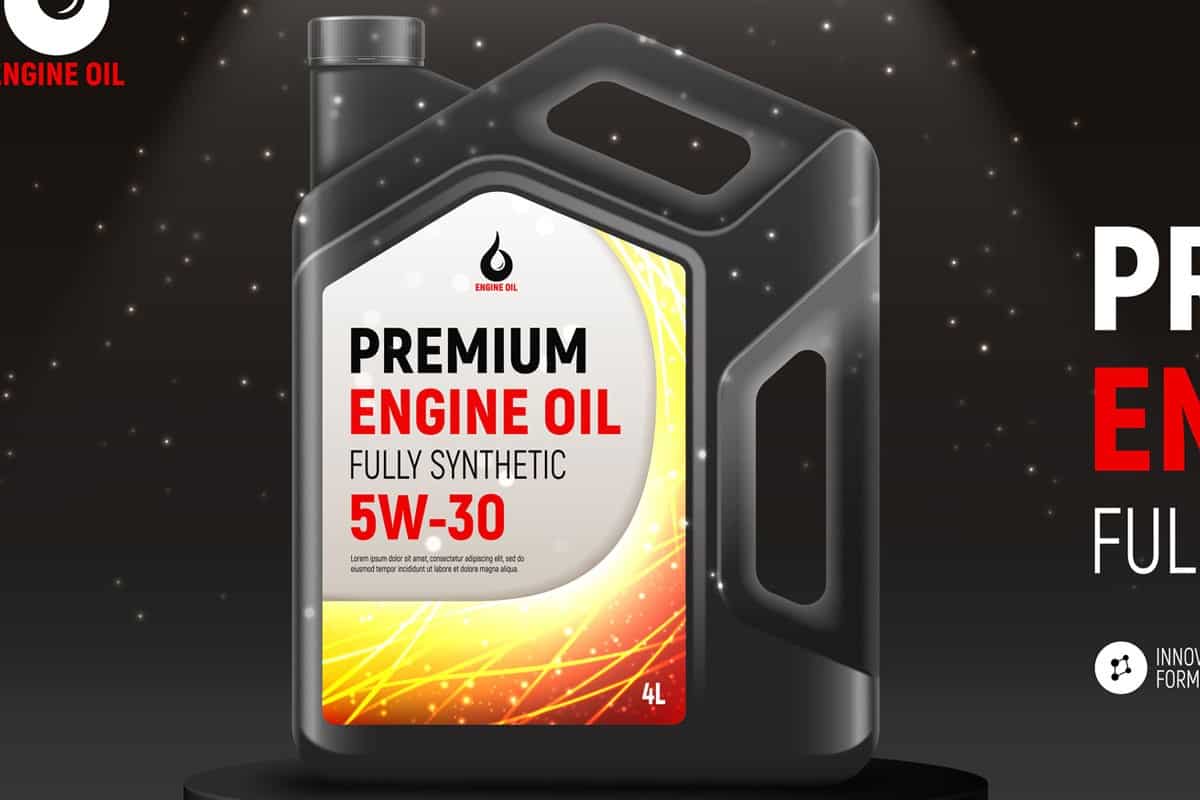
The correct oil ensures the best lubrication
The various grades of oil produced are separated by their viscosity. An oil's level of viscosity refers to its thickness. As the oil flows through the engine, it will work to lubricate all of the moving parts. This keeps the force of friction from damaging them, preventing costly repairs down the road.
If you use the wrong grade, the oil will not flow through the engine as needed. Moving parts won't get the lubrication that they need if the oil is too thick. And if the oil is too thin, you might find it slowly seeping from various gaskets and out of your engine.
Using the wrong oil can create a buildup
Oil not only lubricates the engine but also works to remove the buildup inside of it. An engine is a hot and dirty environment, and gunk and debris will accumulate inside of it over time. Fresh oil will help this buildup from happening, sweeping it away from the inside.
If the oil is the wrong viscosity, it will not be as effective in cleaning the engine. The carbon deposits and other elements will slowly build up, further impacting the effectiveness of the oil.
An engine can overheat with the wrong oil
Engine oil also works to cool the engine. It does so by not only reducing the heat generated by the force of friction but also by absorbing some of the heat a running engine produces.
If you use the wrong viscosity, you will greatly reduce the oil's ability to cool the engine. Though the engine is also cooled by engine coolant from the radiator, you still create a risk of the engine overheating. This is especially a risk in higher mileage engines or during the hottest days.
You might notice a decrease in fuel economy
One benchmark of an engine running at optimum performance is its fuel economy. The harder an engine has to work, the more fuel it will require to continue to run. If the wrong viscosity oil is coursing through your engine, it likely won't be getting the miles per gallon that it was built to get.
Using the wrong oil might void your warranty
Though the Jeep Grand Cherokee is built to last, the factory warranty provides peace of mind. In the rare occasions that mechanical problems do arise, parts and labor being covered by a factory warranty go a long way in keeping a Jeep owner whole.
You do not want to make the mistake of voiding your Jeep's warranty. Proper care and maintenance are required to keep a vehicle's warranty valid. If you use unauthorized parts or fluids, this can lead to the warranty becoming null and void.
Be sure that you use only the recommended oil for your Jeep Grand Cherokee. Doing so will not only ensure its performance and save you costly repairs but will also keep the promises made by the manufacturer intact.
When should you change the oil in a Jeep Grand Cherokee?
It's not enough that you use the recommended motor oil for your Jeep Grand Cherokee. Though built tough, motor oil does not maintain its effectiveness forever. It has a useful life, and exceeding it will have some expensive consequences.
The owner's manual of any gasoline- or diesel-powered vehicle will outline the routine maintenance that you need to adhere to. Chief among these maintenance items is the scheduled oil and oil filter change. But when it needs to be changed will depend on several factors.
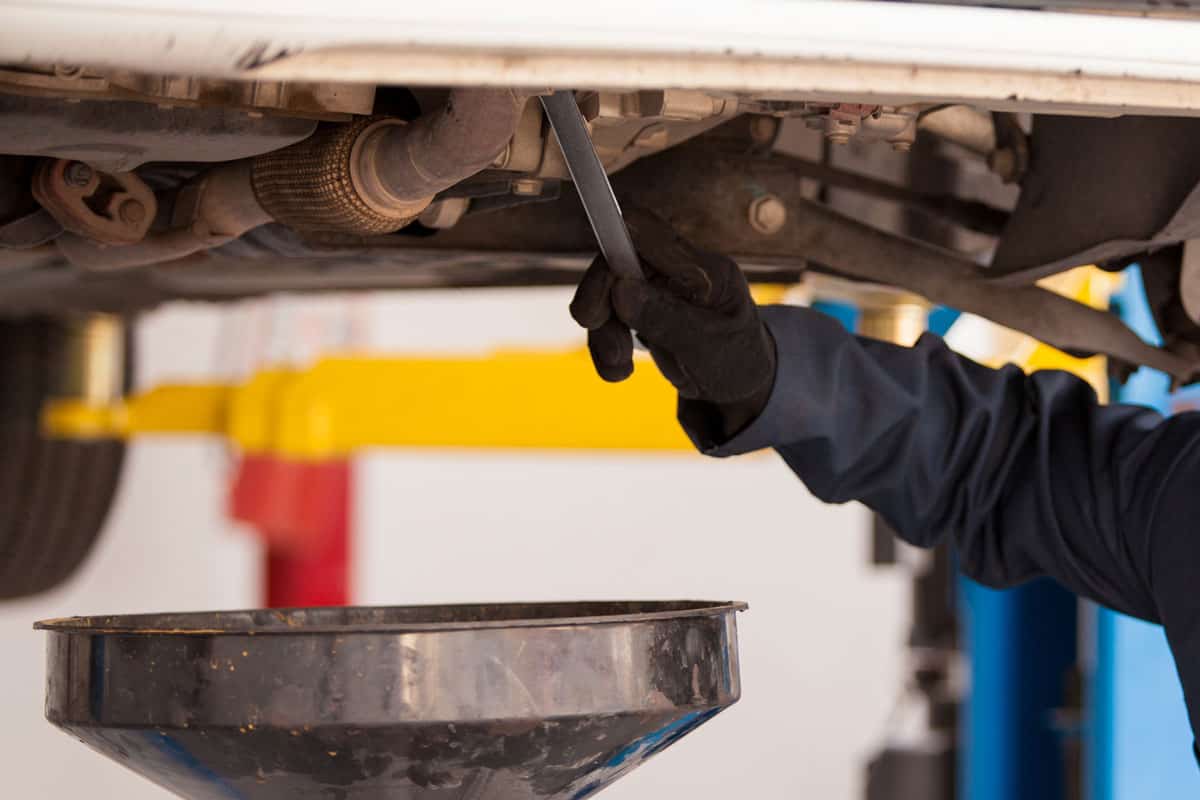
Synthetic motor oil
As we discussed earlier in this post, synthetic motor oil is the best choice for the 2022 Jeep Grand Cherokee. Additionally, recent model years of this vehicle are recommended to use this type of oil. One of the many benefits of using this oil is that it doesn't need to be changed out very often.
Depending on your mileage, you can change synthetic motor oil every 7,500 to 10,000 miles. Lower mileage engines are at the higher end of this range, while older models should have their oil changed out at the lower mark.
Conventional motor oil
If you are driving an older model Jeep Grand Cherokee, you're most likely using good old-fashioned motor oil. This type of oil doesn't have the life that its synthetic counterpart possesses.
It's a great rule to change conventional motor oil every three months or 3,000 miles, whichever comes first. This will keep fresh, new oil working its hardest to keep your engine lubricated, cooled, and running at full capacity.
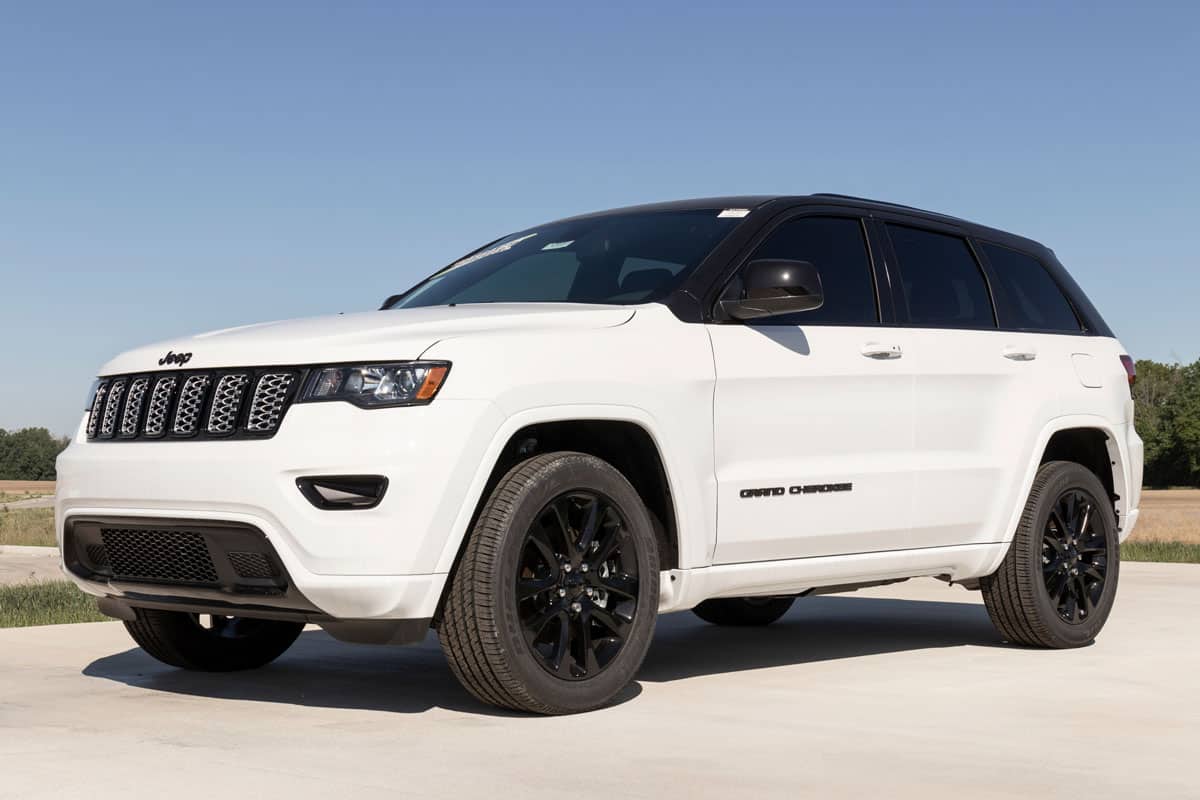
Is synthetic oil better than conventional motor oil?
If you are driving a newer vehicle, synthetic engine oil carries many more advantages over traditional oil. This lubricant is a lot cleaner, won't break down or evaporate, and is more effective at cleaning your engine.
Though synthetic oil costs more by the quart, it will be overall less expensive to use. As you will be able to use it much longer, this translates to less oil being purchased. Additionally, since the oil is changed less, it means less money and time spent getting it changed.
Synthetic oil is the best for most newer vehicles. In older models, it can be risky, however. It's a bit thinner, leading to potential leaks. If you drive an older model, consult with a trusted mechanic before you make the switch to synthetic oil.
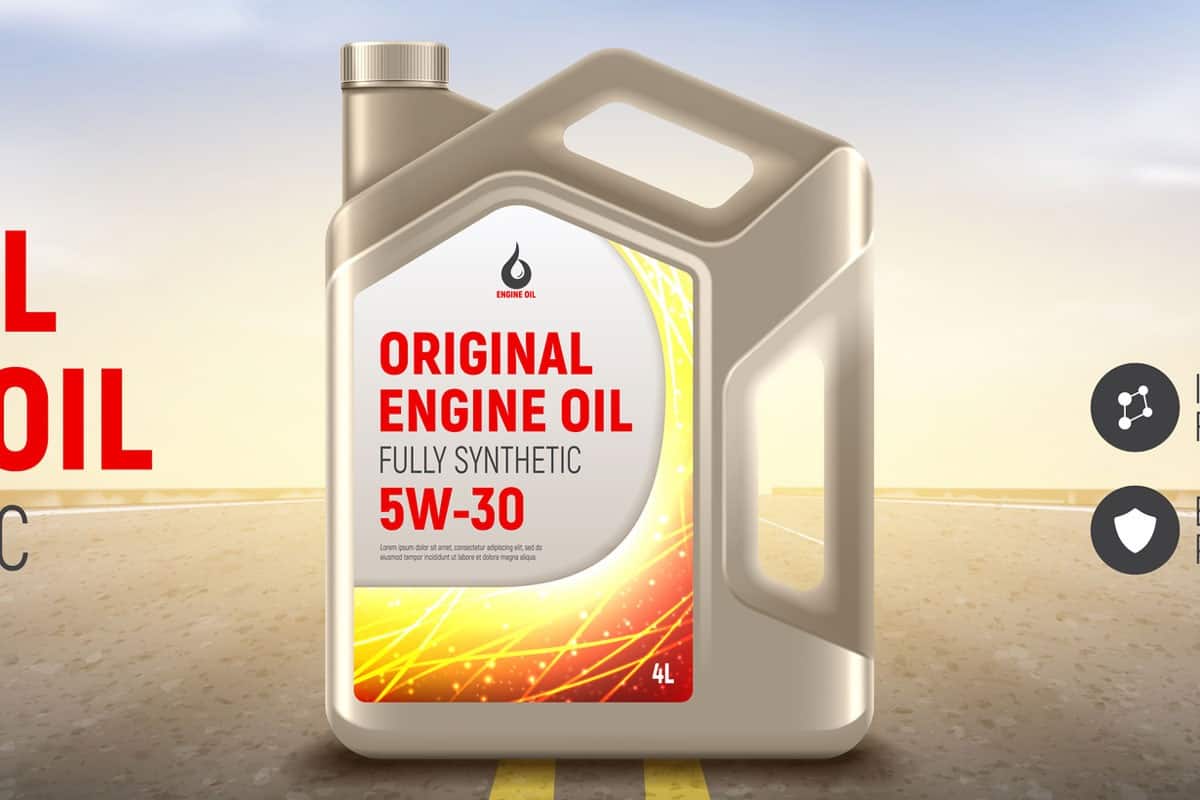
Final thoughts
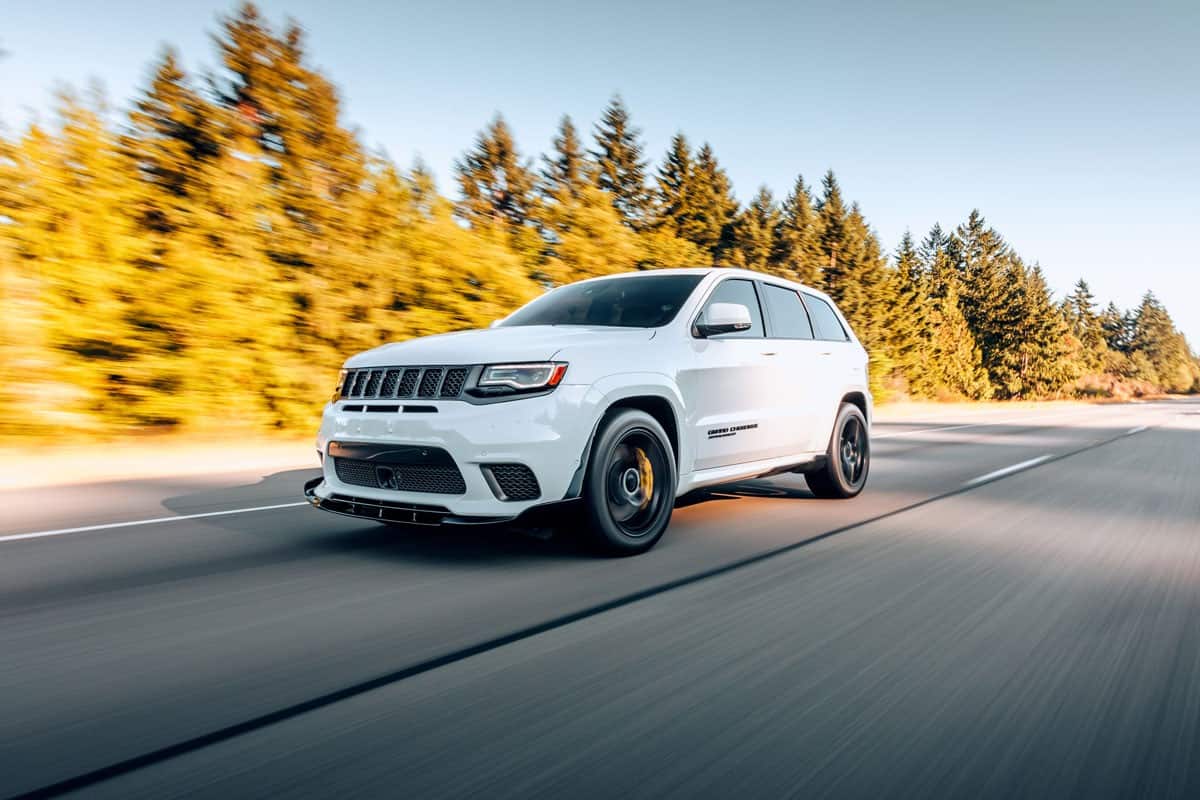
The Jeep Grand Cherokee has a recommended brand and viscosity level for its engine, and that should be taken seriously.
The life and performance of the engine are largely based on what oil you use and how often you change it. Use what the manufacturer recommends, and always keep with the maintenance schedule that is provided in your owner's manual. Drive safe!
We hope this post answered all of your questions. For additional information, we suggest reading the following posts:
Jeep Grand Cherokee Summit Vs. Overland: What Are The Differences?
Jeep Grand Cherokee Humming Noise When Accelerating – What Could Be Wrong?
